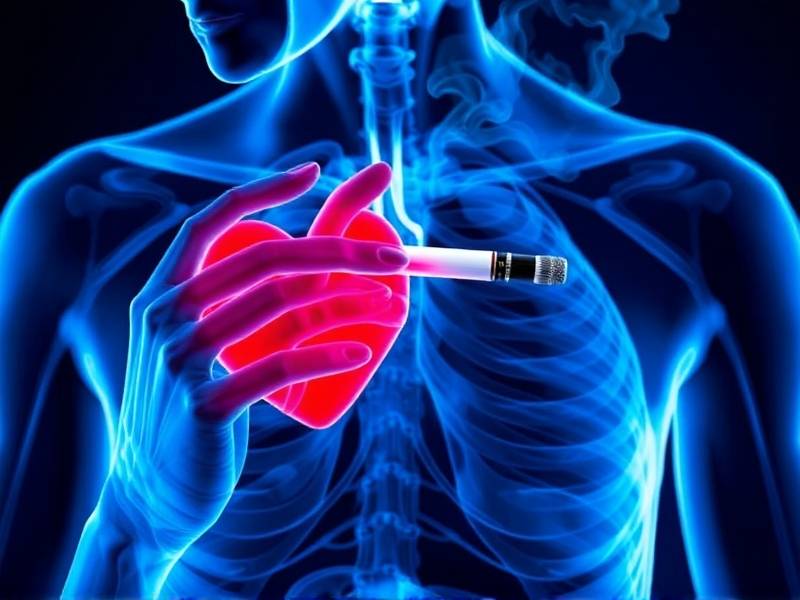Can Quitting Smoking Really Cause Heart Pain?
Understanding the Connection Between Quitting Smoking and Heart Pain
The decision to quit smoking is a significant step towards a healthier lifestyle. However, many smokers are hesitant to take this leap due to concerns about potential side effects, including heart pain. This article aims to shed light on whether quitting smoking can indeed cause heart pain and provide insights into the process of recovery.
What is Heart Pain?
Heart pain, also known as angina, occurs when there is a lack of blood flow to the heart muscle. This can happen due to narrowed or blocked arteries that supply blood to the heart. The symptoms of heart pain include chest discomfort, pressure, or tightness that may radiate to your arms, neck, jaw, or back.
Can Quitting Smoking Trigger Heart Pain?
While quitting smoking itself does not directly cause heart pain, it can sometimes trigger symptoms that mimic angina. This is because the body undergoes significant changes during withdrawal from nicotine.

Nicotine Withdrawal
Nicotine is an addictive substance found in tobacco products. When you stop smoking, your body goes through withdrawal symptoms as it adjusts to lower levels of nicotine. These symptoms may include:
- Intense cravings for cigarettes
- Irritability
- Anxiety
- Insomnia
- Increased heart rate and blood pressure
The Role of Nicotine in Heart Health
Nicotine has been shown to have both short-term and long-term effects on the heart. In the short term, it can cause your heart rate and blood pressure to rise temporarily. Over time, however, chronic exposure to nicotine can lead to serious cardiovascular issues like coronary artery disease.

Recovery Process
When you quit smoking, your body begins to repair itself by reversing some of the damage caused by nicotine exposure. This process can take several weeks or months. During this time, you may experience withdrawal symptoms that could be mistaken for heart pain.
To differentiate between withdrawal symptoms and actual heart pain:
- Duration: Withdrawal symptoms are usually short-lived and may come and go throughout the day.
- Location: Heart pain typically occurs in the chest area but can radiate to other parts of your body.
- Intensity: Heart pain tends to be sharp or throbbing in nature.
- Response: If you experience chest discomfort while at rest or during physical activity that isn't usually taxing on your heart, it's essential to seek medical attention immediately.
Tips for Managing Withdrawal Symptoms
Quitting smoking is challenging, but there are ways to manage withdrawal symptoms:
- Stay Hydrated: Drink plenty of water throughout the day.
- Exercise Regularly: Physical activity can help reduce stress and improve mood.
- Seek Support: Joining a support group or seeking counseling can provide emotional support during this challenging time.
- Consider Medication: Your doctor may prescribe medication such as nicotine replacement therapy (NRT) or non-nicotine medications like bupropion (Zyban) or varenicline (Chantix) to help manage withdrawal symptoms.
Conclusion
While quitting smoking may trigger withdrawal symptoms that mimic heart pain in some individuals, it's crucial not to delay quitting due to this concern. The long-term benefits of quitting smoking far outweigh any temporary discomfort you may experience during withdrawal.
Remember that if you ever have doubts about whether what you're experiencing is actual heart pain or simply withdrawal symptoms from quitting smoking, it's always best to consult with a healthcare professional for an accurate diagnosis and guidance on how best to manage these concerns.
By taking steps towards a smoke-free life and seeking support when needed, you're taking an essential step towards improving your overall health and well-being.
